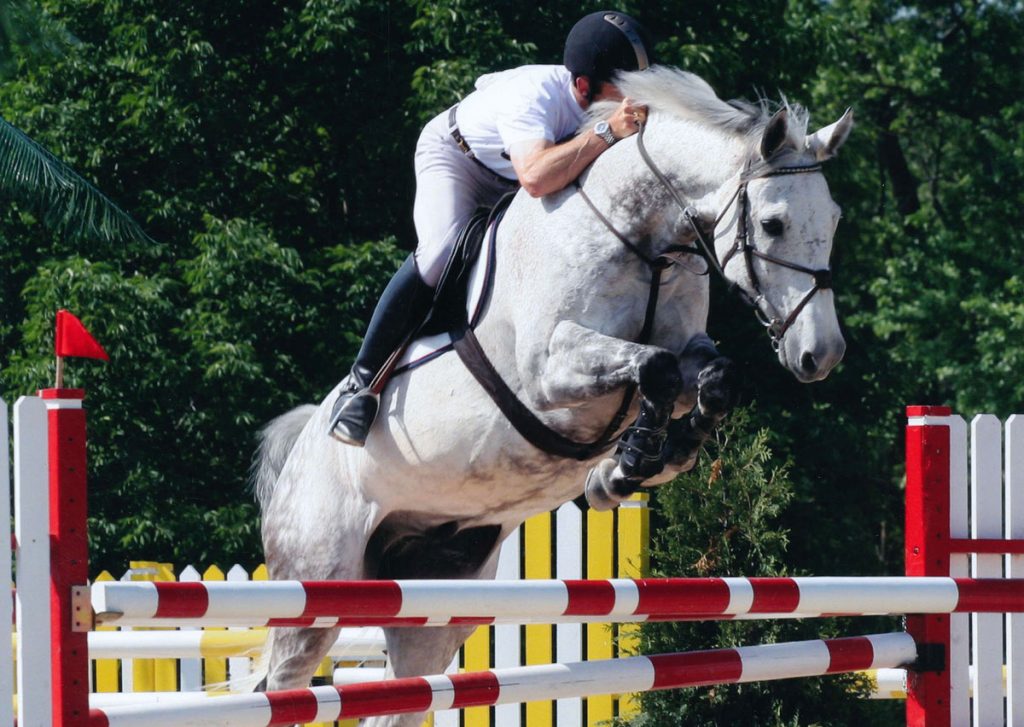Principles of Training

Training is the absolute foundation of our horse’s performance. Without good training will we never achieve our goals – whether that’s to jump around your first 80cm track, or your first Grand Prix. What we often don’t think about is the best way to structure our training and how we should go about developing a training schedule. In this post, Derek McConnell gives us some invaluable insights into the principles of training – the foundation of a successful future.
1. TO DEVELOP THE TEAM: To be a successful rider a strong bond MUST be developed between the horse and rider. An empathy, a closeness, a harmony should be fostered to ensure that the horse and rider become one mentally and physically.
2. REALISM: Training must be realistic. While it is impossible to create completely a competition like scenario during training, attempts must be made to challenge the rider’s ability. All courses will have related distances; therefore these must be practiced on the training ground. In addition, “jump off” technique should be practiced.
The Coach should attempt to give the students techniques to deal with the universal issue of “competition pressure”. ALL competitors have nerves. To be successful one needs to control and utilise your anxieties. This can be achieved by the use of a planned routine for all training, with short, medium and long term goals. With a show jumping round lasting about 80 seconds, no rider can “think” their way around the course. Everything must be an instinct born from Muscle Memory. The trick is, that the Amateur practices until he gets it right, while the Professional practices until he cannot get it wrong, Therefore the right instincts must be developed in the rider by relentless, realistic training.
3. CONTINUOUS: For riders seeking to become a Professional, constant monitoring is required. A mix of a number of formal lessons per week plus much mentoring will ensure progress. For the amateur rider, a lesson per week, plus, attendance at shows where their coach is present to mentor them would be a good option. Video analysis and debriefing after each round aids training. There MUST be honesty between coach and rider at all times.
4. CHALLENGING AND INTERESTING: It is a challenge to instruct riders very regularly and keep your lessons challenging and interesting. However, it is vital for both horses and riders. To be successful with this principle the Coach must be familiar with the vast range of training exercises, capable of remedying any fault of horse and rider. If required the Coach may have to ride the horse himself to demonstrate. The use of the video camera, switching horses in group lessons, training on different surfaces and locations, keeps horses and riders sharp mentally and in a good learning space.
5. WITH AIMS AND OBJECTIVES: The five “P’s” should be remembered in this case. Planning and Preparation prevents poor performance. This principle can be divided into Short, Medium and Long term aims. A short term aim might be the daily training period. For example to successfully execute a 7 stride bending line. However, the exercises should be prepared on the training ground i.e. the gym should be “set”, so that tangible objectives are met. A long term aim might be to move up from 1.10 to 1.20, or working towards a particular Qualifier or important competition.
6. REFLECTIVE OF THE INDIVIDUAL: While all riders wish for the same desired endstate, all riders are different. They require different approaches as to how they get to this successful endstate. There may be some similarities in terms of the basics; however, there will be differences in terms of confidence levels, confirmation, personality, age, experience, previous training, fitness, drive and talent.
7. PERMISSIVE OF ERROR: We learn much more from our errors / failures than from our successes. Do not allow our errors to define you or bring your levels of enthusiasm down. Students sometimes get worried during lessons that they are making errors, whereas it must be understood that this is all part of the learning process. Keep trying hard!
